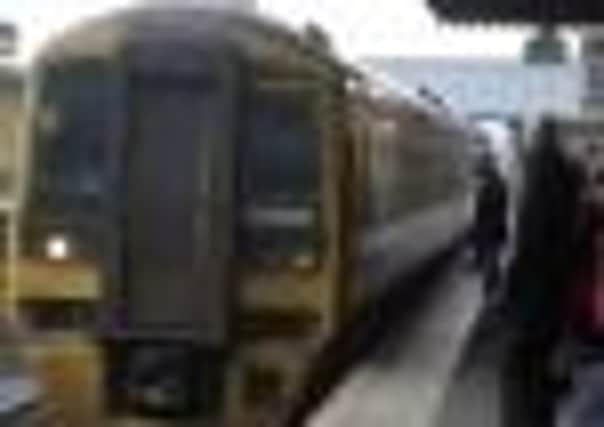Rail fares hike hit Yorkshire


Transport operators said the region’s average eight per cent price increase, which is two per cent higher than the national standard, was needed to pay for extra carriages on busy trains.
Advertisement
Hide AdAdvertisement
Hide AdUntil Sunday, a standard day return ticket from Dewsbury to Leeds cost £4.50. But on Monday it went up to £5 – a rise of 11 per cent. A day return from Mirfield to Huddersfield rose from £2.10 to £2.30.
The government originally planned to cap fare rises at the rate of inflation plus three per cent, which adds up to around eight per cent.
Then last January, Chancellor George Osborne said fare rises would be capped at inflation plus one per cent, the equivalent of around six per cent.
However, Northern Rail, which runs trains across West Yorkshire, has a deal with Metro dating back to 2006 that allows it to increase prices in West Yorkshire at the higher average rate of eight per cent.
Advertisement
Hide AdAdvertisement
Hide AdThe Campaign for Better Transport said no other train operator had a deal that allowed it to increase its prices by so much. Sophie Allain from the group said: “It’s outrageous that the government is asking commuters in West Yorkshire to pay the highest average rail fare increases in the country.
“Public opinion and political pressure have forced the government to ease off its original policy of inflation plus three per cent, but it seems commuters in West Yorkshire won’t benefit.”
A Northern Rail spokeswoman said on average, fares for the north of England would only rise by 6.7 per cent, and the average journey would cost £2.35.
She said: “Money raised through fares helps to pay for more trains and improvements to stations. This includes projects such as the introduction of 60 additional carriages to help alleviate overcrowding on peak services. However, we know that these are difficult financial times, which is why we will continue to work with the government and the wider rail industry to drive down the cost of running the railway.”